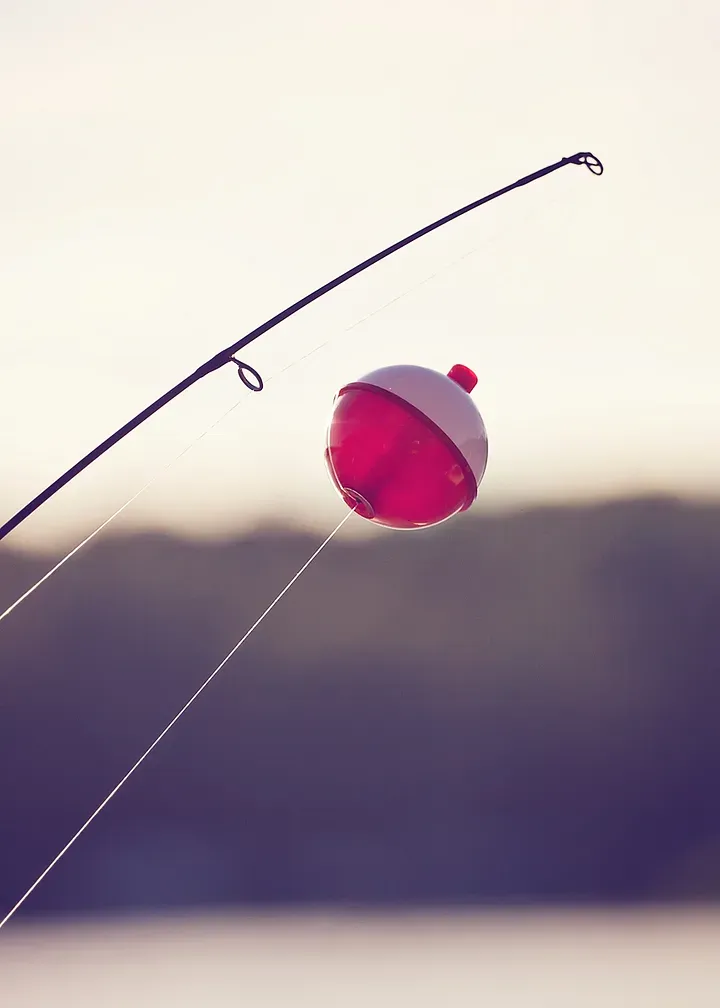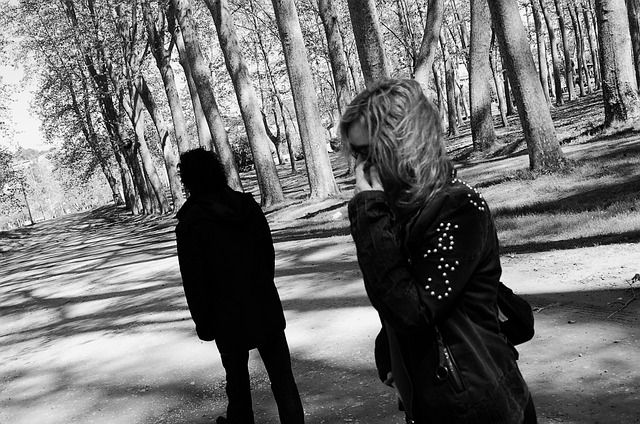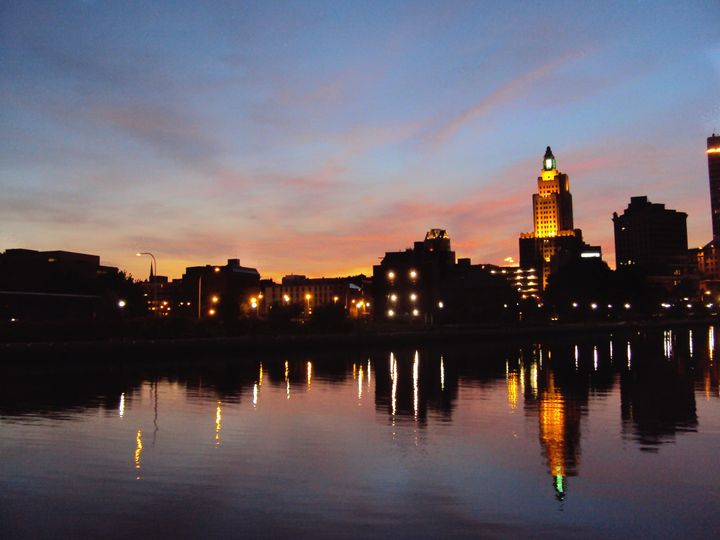Teach a Man To Fish: Pictures of My Father

The thing I’ll remember most fondly about him is fishing. More specifically, teaching me to fish, on the edge of Lake Musconetcong, behind the Old Morris Canal Inn.
It was just down the street from our house, where we were lucky enough to live on a hill overlooking the lake. There was always a serene view just outside our dining room window, a postcard picture of nature, tranquil and placid. Down at the lake, with our poles rested on our tackle boxes, we would sit, quietly. There would rarely be spoken words, except for the occasional bite on my line, during which he would try to help me learn how to set the hook and reel in the fish.
This is the essential picture of my father. He enjoyed the quiet. My mother, by contrast, loved the bar and loud voices and chaos. There was a primal difference in the way my parents approached life, resulting in a divorce when I was six. My father won custody, unsurprisingly.
Even though he promised my brother we would never move from our house in Stanhope, when my father remarried, the very next year, we spirited our things from that lake view house to one on a lake, in Jefferson. My dad loved water. Fishing, or just sitting on the boat in the middle of the water, was the one proven balm for his troubles.
My stepmother and he eventually divorced (thank goodness, for she was—quite literally—insane), but my brother continued lashing out against Dad, until he was finally given what he wanted: freedom. He moved back to Stanhope to live with a friend’s family and continue playing football with his home team.
Then it was just me and Dad.
He wasn’t a perfect man, by any measure, and to be honest, he was responsible for a lot of the bad habits I picked up, though I bear the onus for continuing them later in life. He was lazy when it came to taking care of himself. He only cooked a handful of unhealthy foods, preferring to order pizza or chinese food. He ate loads of sugar while sitting on the couch, and since his job consisted of sitting most of the time, he got little exercise. He did not take care of his teeth. He smoked like a chimney.
He was inspired to some change when he met his last girlfriend, quitting smoking and eating better. He had no choice. With a history of cancer in the family, and his own diabetes diagnosis, he tried to make significant life changes, but these were short-lived. When those in our family who cared tried to suggest keeping up with the doctor’s orders, he became annoyed, telling people to mind their own business.
It wasn’t that he didn’t want to be healthier, it’s that he was so bogged down by the weight of the changes he had to make that he felt despair. He thought he just couldn’t do it. So instead of trying and failing, he opted not to try at all. It’s a lesson I learned early on: it’s better never to try than to fall flat on your face in front of your peers.
I resisted that lesson my whole life, but didn’t find much success. I went to college, something no one in my family had done. (I didn’t finish due to financial reasons, but I did go.) I kept moving up the job ladder, moving from place to place in increasingly difficult jobs that I was not qualified for, not content to stay in one place for long. I tried to take control of my weight and nutrition, something that, until very recently, I failed at consistently.
But the lessons of failure that I learned from him made an impression on me as I got older, and it seemed easier to live in the relative safety of the same job, the same habits, the same old me for years to come. I found myself eating crap, sitting on the couch after work, and making plans for change that I wouldn’t follow through on.
Meanwhile, I was realizing I might not be able to break this cycle of entrapment that my family falls into, male after male. It’s my grandfather’s legacy, my father’s inheritance, and my brother’s shame. Anger and bitterness is not only handed down through the generations in my family, but it grows hotter with each year and each person.
Could I fit myself in a new paradigm?
I had a lot of good lessons from my father, too. He was a hard worker, and managed to climb the ladder at his local-government job. He was willing to improve in small ways. He had an easy, sarcastic sense of humor, and was well-liked for it.
He was always willing to teach me anything I wanted to learn, even if he wasn’t always the most patient instructor. Sometimes I got better at the task than he was. He taught me to read when I was five, and to play chess when I was seven.
But it was always fishing we returned to. That was our thing. Every Sunday morning, up at 5:00 to pick up a classic New Jersey breakfast (coffee and a buttered hard roll), then to Landing, or Lake Hopatcong. We fished if it was sunny or raining. We fished until lunchtime, and we didn’t catch much on most days, and we didn’t talk much.
Just me, him, the water, fishing poles, and silence.
A few years ago, his health deteriorated to the point where he couldn’t get into a boat, or even stand on the shore with a fishing pole. He grew dizzy frequently, and at first, we all thought the diabetes was getting worse. That would come as no surprise, given that he’d returned to his old diet of sugar and snacks.
In 2011, he was diagnosed with cancer. Radiation treatments, along with surgery, helped at first. The tumors went into remission. During this time, he and his girlfriend found they could no longer live together, and later that year I helped him move into “independent living,” which is nearly-assisted living. He wasn’t ambulatory without the use of a walker, but he did his best. He didn’t seem too bitter or angry about his situation, but I knew that in his mind and heart, he just wanted it all to be over.
After spending tens of thousands of dollars on new furniture and accoutrements for his apartment, he seemed to be at home. I flew back to Rhode Island. Shortly after, my brother drove down to watch the Super Bowl with him. I called after the game, and he seemed to be in pain and uncomfortable, but I figured he would just go to sleep. After my brother left for the night, my father called 911, and ended up in the hospital, his sugar at astronomical levels.While my brother was visiting, my father hadn’t once gotten out of his scooter-chair, was eating junk, and apparently was in and out of consciousness. Not once did it occur to my oblivious asshole of a sibling to call an ambulance.
After my father recovered, it was decided that he just couldn’t live alone. He was moved into a nursing home, but not like the ones on TV. He had no money left, and couldn’t afford the kind where you have a nice, normal room. He ended up in a place that just seemed like any other hospital. The staff was excellent, though.
He grew depressed. I would talk to him on the phone, and he just kept referring to his new home as his final home. He knew he was never going to get out of there. The nurses tried to get him to do some physical therapy, even though he couldn’t pay for it, but he’d given up. He told me he’d walked around one day, but I knew that wasn’t true. He believed he had, though. He was starting to imagine that he was getting out, that he had bought a new Cadillac, that he was going “home.”
The cancer was clearly back, and it was taking the last thing he had left: his mind.
My aunt and I visited him in October of 2012. I was prepared for the worst. When we walked into his room, I saw a ghost of the man I had grown up knowing. He had always been overweight, but now he was gaunt. His legs were spindly, his arms thinner than I had ever seen them. His face barely resembled anything I remembered, though his smile and his eyes remained the same.
I knew from my aunt and the nurses that he hadn’t been eating. He had been placed with hospice, though that wasn’t to signal the end of his time, but simply a hope that the additional comfort would help. The beginning of it was coincidentally timed with our arrival. The first meal they fed him that day wasn’t great, and he picked at it. When my aunt and I went out for lunch, we brought him back some fried chicken and biscuits, one of his favorite things to eat. Despite the unhealthiness of the meal, we figured that if he’s not eating anything, something is better than nothing. He put the food down with gusto, eating all of the chicken and a couple of biscuits.
He was talkative, and some of his sarcastic sense of humor returned. With great effort, the nurses got him out of bed and into a wheelchair. We took him outside on the patio. He continued eating—snacks, water, ice cream—and seemed to have an appetite. It appeared he was getting better. He talked more. He made sense.
We talked about bringing him home, to New Jersey, where there was more family around that could help him. We were hopeful that this might signify a recovery, but deep down, I didn’t believe that. He could barely move. His legs were locked into position, his knees unwilling to bend in any helpful way. He was living in clarity one moment, a fantasy world the next.
A week later, I said goodbye, with a dark feeling that it would be the last time.
I talked with him on the phone a few more times that winter. He asked me what I wanted for Christmas when he was able to “go home.” I called him on New Year’s, but he couldn’t talk long; he wasn’t feeling well, he said, and he would call me back. After a few days, when he didn’t return my calls, I got another message from my aunt.
“He’s not well,” she said. “We’re going down to see him. It’s almost time.”
I didn’t have the money to hop on a plane, so I got status updates via text and phone calls. He wasn’t talking, so I couldn’t really have a conversation with him. Then, at about 2 in the morning on January 7th, I was up late (as I usually am), and I checked Facebook. His girlfriend had posted, “RIP John. You’ll be missed.”
I was a little aggravated at finding out about his passing via social media, though I knew the message was meant for my brother, who hadn’t even called to check on him. My brother, who when my father could no longer be alone in Independent Living, rushed down—not to help, but to take as many of my dad’s new things as he could fit in a truck.
The funeral would be a week later, and I couldn’t really afford to go to that either, nor did I really want to. My family fights and argues a lot, and I had already said my goodbyes.
Just like I knew I had.
I say now that I want to break out of the paradigm my family has been stuck in for generations, and I believe I have. I don’t want to leave my dad behind entirely, though. I have his sense of humor. I’ve inherited his enjoyment of a “nice time”—fine restaurants, maybe some gambling (conservative with the money, of course). I also share his disdain for drama, especially within our family. He and I ignored and avoided it.
I was also handed down his stoniness in the face of death. When my grandfather died (and years later, my grandmother following him), he grieved in his own way, and though I knew there was sadness and a silent mourning, he didn’t cry, at least in front of anyone.
And when my father passed, I did not cry. I grieved in my own way, quietly, and accepted condolences graciously. It wasn’t that I didn’t care. It’s just the way it is.
I also carry with me that fascination with the still water, fishing pole in hand, and only the sounds of the birds and far-off boats, the smell of the lake and worms and caught fish (on a lucky day), and just my own thoughts. I’m not a big believer in the afterlife, but if it exists, I hope we’ll share the boat, a couple of coffees and rolls and no words.




Comments ()